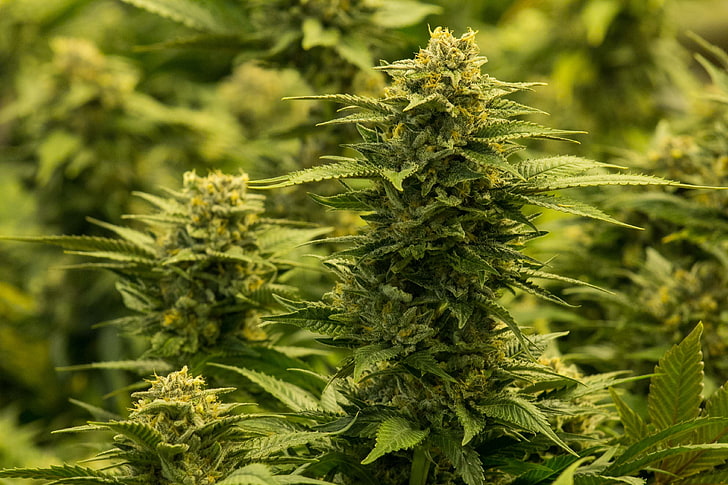
How Long Does THC Stay in Your System? | Simply ERB
How Long Does THC Stay in Your System?
If you don’t have a 420 friend to let you know how to pass a drug test, this blog post is for you. Prohibition may have ended in California and other legal cannabis states, but that doesn’t mean random drug tests go away. Many of our customers have jobs that may require random or scheduled drug tests that test for THC and we agree with you, that’s some BS. However, we’re not here to get anyone fired or thrown off their professional sports team so in this post, we’re going to dive into how long THC stays in your system and why. THC will stay in your system for 3-5 weeks but read through the rest of this blog post to learn why and how you could potentially detox faster. If you’re worried about failing a drug test because of CBD, don’t worry, urine tests are only looking for the metabolites of THC.
First of all, you shouldn’t feel ashamed or guilty about reading this article. Cannabis is a progressive lifestyle and medical therapy and there are a lot of slow-moving corporations in the world today. Cannabis is the most consumed drug outside of caffeine, sugar, and alcohol and it is one of the most tested drugs for employers. Almost everyone has a story of having to deal with school or workplace drug tests and there is a lot going wrong with this system. Unfortunately, we don’t have the power to change the system, but we can help you become more knowledgeable about how to prepare for a future urine test. You may even be able to impress some of your friends about your knowledge of cannabinoids metabolism.
Let’s cut to the chase, you’re reading this because you or a ‘friend’ is anticipating having to take a urine test in the near future and you’re worried that your relationship with THC may upset your employer. This is a valid concern, especially if your job requires the use of heavy machinery and we have to be respectful of the reasons why employers have to use urine tests. Most employers don’t want to be in the business of not trusting their employees and forcing them to comply with urine tests, but the choice is often out of their hands. Insurance companies, regulations, and liability issues require employers to create safe work environments and no one wants an employee or a co-worker driving the forklifts after eating 25 milligrams of brownies or burning one down at lunch. This is a completely valid reason to have a no drug policy at work, but the problem with testing for THC is that it stays in our systems much longer than alternative drugs. There is also no easy way to test employees on the spot if an employer or manager suspects THC use on the job and the only legal option is to test urine. Many employers actually understand the unfairness behind these policies, but they are more afraid of being liable for a workplace-related THC accident and are trying their best to cover their behinds.
The biggest problem with employer drug tests and no drug policies is that these policies unfairly target cannabis consumers as most of your harder drugs like alcohol, cocaine, heroin, and meth leave your system within a few short days. Most employers would probably prefer their employees to use cannabis over these harder alternatives, but why exactly do cannabinoids like THC get stored in the body for so long, while harder drugs can leave your system within 24-48 hours? The answer lays in the medicinal properties of cannabinoids and how cannabinoids get absorbed into the body.
Our bodies treat cannabinoids and hard drugs differently. Cannabis and hard drugs provide user highs by getting into our bloodstreams, but this is where the similarities end. Hard drugs enter our system and they are immediately identified as toxic threats that most get expelled. The toxicity of these chemicals is what leads to so many chronic healthcare conditions from these users, but it also kick starts our immune system to purge the body of this toxicity. On the other hand, cannabinoids like THC are non-toxic and these compounds actually mimic our body’s own therapeutic compounds. Instead of trying to expel cannabinoids out of the body, our cells look to store cannabinoids that aren’t used right away. As THC makes its way through our bodies it eventually metabolizes in your liver and turns into THC-COOH, the compound that urine tests use to identify cannabis users. Researchers believe that most of this metabolizing of THC occurs with the first two-hours after using cannabis, but the half-life of THC-COOH is typically 3-5 weeks for casual cannabis consumers.
Instead of being expelled from the boy, THC’s metabolite is actually ‘fat-soluble’ and gets absorbed by our fat cells. Hard drugs, on the other hand, are not fat-soluble and don’t have to worry about being reabsorbed. Hard drugs will get metabolized by your liver and be excreted through your urine with a short time period.
It doesn’t matter how you consumed your THC product, 3-5 weeks is the standard timeframe, but if you are a daily consumer of cannabis it may take much longer. THC metabolites actually become more concentrated in our fat cells the more we consume and it becomes harder to burn through all the fat cells that are storing THC-COOH. High Times reports that it could take 50-77 days for a daily consumer of cannabis to have clean urine. THC metabolites will also stay in your system much longer if you have a higher body fat percentage.
At the end of the day, the best way to clear your body of THC is to exercise daily, eat foods that help you burn fat, and drink plenty of water. In order to get all of the THC-COOH out of your body, you must burn through all of the fat cells that are storing the metabolite. There have also been reports that you can increase your chances of passing a urine test by skipping workouts 48 hours before your urine test. The theory is that THC-COOH may still be locked in your fat cells and by skipping hard workouts this THC-COOH won’t be detectable in your urine if it is still locked up in your fat cells.
For Employers
If you are an employer who is reading this article we urge you to think outside of the box when it comes to encouraging sobriety and responsibility at work. Urine tests fail to identify the differences between using cannabis at work and using cannabis at the end of a long workday.
In our personal opinion, employers should prefer cannabis consumers over alcohol users every day of the week. Cannabis users are calmer, less emotional, and don’t wake up with hangovers from the night before. In reality of the situation, cannabis users have gotten a bad wrap and a lot of this bad PR revolves around the threat of a failed drug test. In the state of California and across the nation employers have the legal right to enforce drug policies, but we urge employers to recognize that these drug policies are only encouraging the consumption of far more dangerous drugs that leave the human body within 24-48 hours. Cannabis consumers should no longer live in fear of a random drug test that could end their careers. Urine tests cannot tell when your employee last smoked and are not effective at preventing dangerous drug behaviors.

